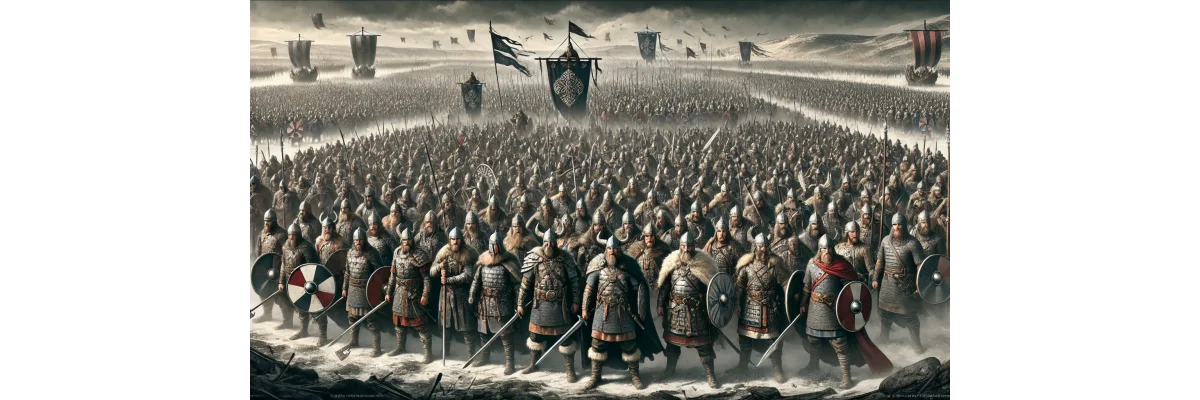The Great Heathen Army: A Viking Force of Conquest and Change
The Great Heathen Army, also known as "The Great Viking Army," stands as one of the most formidable and impactful forces of the Viking Age. This massive coalition, formed in the late 9th century, unleashed a wave of destruction and transformation upon Anglo-Saxon England, reshaping the course of history. This blog delves into the origins, campaigns, and enduring legacy of the Great Heathen Army in European history.
Origins of the Great Heathen Army
The Great Heathen Army emerged in 865 AD as a unified force of Scandinavian warriors from Denmark, Norway, and Sweden. Unlike earlier Viking raids, which were typically small-scale plundering missions, this army was a well-organized, long-term operation aiming for conquest and settlement.
The army’s formation is often tied to the legendary tale of Ragnar Lothbrok’s sons—Ivar the Boneless, Ubba, and Halfdan Ragnarsson—seeking revenge for their father’s death at the hands of King Ælla of Northumbria. While the veracity of this tale remains uncertain, it adds an epic dimension to the invasion.
Campaigns and Achievements
The Invasion of England
In 865, the Great Heathen Army landed in East Anglia, negotiating supplies and horses before moving into Northumbria. Northumbria, weakened by internal strife, fell quickly, and the Vikings captured York, its capital.
The Conquest of Mercia and Wessex
After subduing Northumbria, the army moved southward, conquering much of Mercia. However, their advance was halted by Alfred the Great of Wessex, who achieved a decisive victory at the Battle of Edington in 878. Alfred forced the Vikings into a settlement known as the "Danelaw," dividing England into Anglo-Saxon and Danish territories.
The Danelaw and Settlement
The Danelaw marked a new era of Viking influence. The settlers integrated with the local population, leaving a profound impact on language, culture, and governance.
Leaders of the Army
The Great Heathen Army was led by charismatic and formidable warriors driven by ambition and vengeance. Notable leaders include:
- Ivar the Boneless: Renowned for his intelligence and strategy, he is often seen as the mastermind of the invasion.
- Ubba: Another son of Ragnar, infamous for his ferocity in battle.
- Halfdan Ragnarsson: The first Viking king of Northumbria, instrumental in integrating Vikings into English society.
Long-Term Impact
The Great Heathen Army had far-reaching consequences for England and beyond:
- Cultural Integration: Viking settlement led to a blending of Norse and Anglo-Saxon cultures, evident in language, laws, and customs.
- Military Innovations: Viking tactics and strategies left a lasting mark on English warfare.
- Political Upheaval: The invasion weakened Anglo-Saxon kingdoms, paving the way for England's eventual unification under a single ruler.
Legacy and Legend
The Great Heathen Army remains a captivating chapter in Viking history. It is chronicled in sagas and records such as the "Anglo-Saxon Chronicle" and symbolizes Viking power and ingenuity. Modern portrayals, such as in the TV series "Vikings," have brought their story to new audiences.
Conclusion
The Great Heathen Army was more than just a military force—it was an agent of change. Combining military might with cultural influence, the Vikings shaped the history of England and Europe. Their story stands as a testament to the ambition and adaptability of Norse warriors, continuing to intrigue historians and enthusiasts alike.


 German
German














